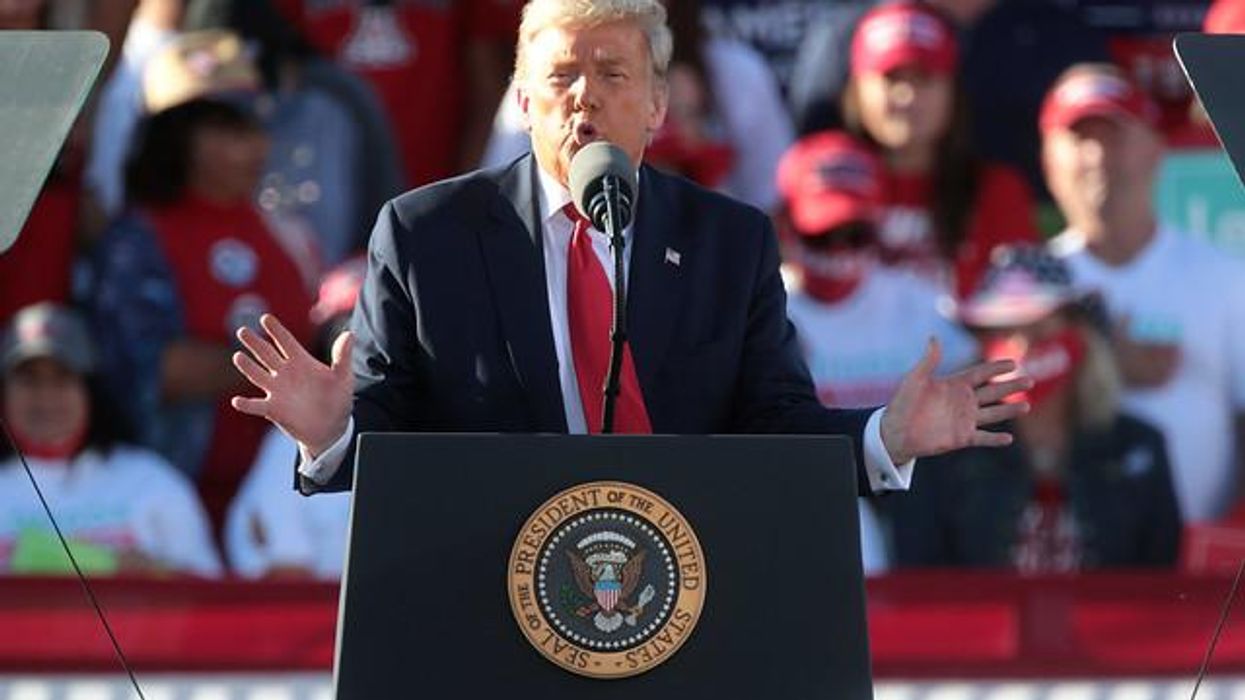New 538 Poll Average Shows Trump Approval In Steep Decline
President Donald Trump's honeymoon is officially over.
The convicted felon's job-approval rating is now underwater, according to 538’s polling average, and it’s happened just a little more than one month into his second term.
According to 538’s average, which sadly is unlikely to be updated anymore after ABC News laid off the site’s entire staff on Tuesday, 47.9 percent of Americans disapprove of the job Trump is doing in office, while 47.6 percent approve.
The polling average largely tracks with a Civiqs poll conducted for Daily Kos, which found 52% of voters disapprove of the job Trump is doing, compared with 48 percent who approve.
According to 538’s average, Trump's job approval rating is in a state of steep decline. On Inauguration Day, his net approval rating was +8.2 percentage points, and now it is -0.3 points.
"Trump’s approval rating is underwater again—a month and a half after beginning his term with his highest approval ratings ever (+8)," Jacob Rubashkin, an elections analyst with the outlet Inside Elections, wrote in a post on X.
The quick end to Trump's honeymoon is in stark contrast to past presidents.
Former President Joe Biden had a positive approval rating until September of his first year in office, according to 538’s average. Former President Barack Obama had a net-positive approval rating until around August 2010—well over a year into his first term—according to 538’s historical averages. And former President George W. Bush had a net-positive rating nearly his entire first term in office, before the public soured on him around May 2004.
Public opinion on Trump has dropped amid the chaos he and his administration have wrought on the country.
The mass purge of the federal workforce, led by co-president Elon Musk, has left thousands out of work and others worried about negative downstream economic impacts.
The tariffs Trump imposed on China, Canada, and Mexico have led to a steep decline in the stock market amid fears that the results of Trump's policy will once again stoke inflation.
And Trump's embrace of murderous Russian dictator Vladimir Putin over U.S. ally Ukraine is also deeply unpopular.
“We’re going to look at presidents at this point in their presidency, right, and the word here that I would use to describe Trump is awful. In fact, the only person who does worse than Trump does right now with a +1 net approval rating is himself back in 2017, when he was at -8,” CNN’s Harry Enten said on Tuesday -- before the FiveThirtyEight average turned negative.
Enten continued, “Donald Trump is doing historically awful.”
And with the economy teetering on the brink of a recession, Trump's approval rating could tumble even further.
Reprinted with permission from Daily Kos.












